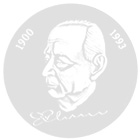Publication of scientific and technical works of young scientists in the magazine JUNGE WISSENSCHAFT (YOUNG SCIENCE)
JUNGE WISSENSCHAFT magazine
Science and technology have been an important part of our culture since ancient times, and have an important influence on human society. Advances in science and technology depend on the work of many highly talented people, whose ideas, creativity, and dedication have played an important part in shaping our modern world. For Germany as an industrial country, researchers and inventors have played a particularly important role in keeping our economy competitive internationally. This is vital to maintaining our social and cultural position in today’s global society.
Obviously, to maintain excellence in science and technology depends on motivating young people with special talents in maths, science and technology, and to encourage them to develop their own activities in these areas. One of the most important means of achieving this is to provide a forum for these young people to publish their work. This forum is the magazine JUNGE WISSENSCHAFT (Young Science).
A central aim of this magazine is to motivate talented young people to take on the challenges of research by publishing original work of young (sometimes very young) scientists.
It is of great value to the educational experience of young people take on a research project, to overcome inherent difficulties, to complete the project and to prepare the results for publication. This approach emphasizes the wisdom that “Research without publication is not science”.
JUNGE WISSENSCHAFT is the only magazine in Germany to exclusively offer young people up to the age of 23 this unique opportunity.
Further aims of JUNGE WISSENSCHAFT are:
To encourage young people to help solve the problems of modern society;
To alert established scientists to the work of their younger ‘fellow researchers’. In turn, the established scientists may then support the young people in developing and testing their hypotheses;
To assist teachers in supporting young scientists and helping them to plan academic careers;
To familiarise teachers with subjects and experiments that can be used for planning new projects for young people.
Additionally, JUNGE WISSENSCHAFT reports on current topics from science and technology, on history of science, and on events of particular interest to young scientists, such as the competition “Jugend Forscht” (Youth Researches). From time to time it also publishes contributions from scientists or politicians on the subject of researching and supporting talent in young people.
The idea for JUNGE WISSENSCHAFT was conceived in 1984 when I was a guest at the University of California at Berkeley, where I met the Nobel laureate Glenn T. Seaborg. One day he gave me a magazine, and asked me what I thought of it. The magazine was called BASE (later renamed “Science21”), and was founded in 1982 with the same aims as outlined above for JUNGE WISSENSCHAFT.
Once I appreciated the value of Base for young American scientists, and thus for American Science and economy, I was so inspired by the idea that I decided to start something similar in Germany. I was able to do this in 1986, thanks to a very openminded publisher, Erhard Friedrich (owner of the publishing house of the same name), and the organisers of “Jugend Forscht”, who immediately recognized the potential of JUNGE WISSENSCHAFT. Additionally, we were fortunate to enlist the support of prominent scientists to act as referees and members of the advisory board.
JUNGE WISSENSCHAFT is now known not only to school students and teachers, but also to established scientists, some of whom have even quoted from JUNGE WISSENSCHAFT in their own publications. And, as JUNGE WISSENSCHAFT is a refereed journal, our young authors can include their contributions in their list of publications when they later apply for jobs.
In addition to the German edition, we have also published several issues in Englisch, under the title YOUNG RESEARCHER, for distribution in other European countries. These journals have been sent to all European high schools, and have enjoyed very positive feedback.
We hope that JUNGE WISSENSCHAFT will continue to make a valuable contribution to science, the economy, and thus to our country’s entire society, for a long time to come.
Prof. Dr.rer.nat. Paul Dobrinski,
FH Hannover
